Course Coordinator & the Instructors
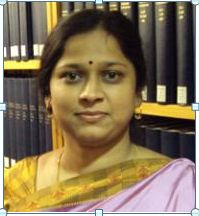
Professor of Law & Director, Centre for Cyber Laws and Forensic Sciences, NALSAR University of Law
Course Coordinator
Prof. K. V. K. Santhy has over 24 years of teaching experience in Criminal Law and completed her Doctoral research on "Penal Reforms in India" from Osmania University. She currently serves as the Proctor of NALSAR University of Law, overseeing campus discipline and student affairs.
Prof. Santhy has led and contributed to several prestigious research projects, including the Study of the Indian Penal Code from a Gender Perspective (NCW), Law on Grievance Redressal in Public Offices in A.P. (Centre for Good Governance), and the Draft Amendment to the Transplantation of Human Organs Act, 1994 (National Deceased Donor Transplantation Network). She also coordinated major studies for the Bureau of Police Research and Development (BPR&D) and the UGC on sentencing perspectives and defective investigations.
She has been associated with the Global Internet Governance and Advocacy (GIGA) initiative of the Ministry of Electronics and Information Technology and has conducted international workshops with the ICRC on International Humanitarian and Criminal Law. As part of her post-doctoral research at the Max Planck Institute for International Criminal Law, Germany, she worked on "Punishment and Sentencing" and submitted a report on "Counterfeit Drugs in India."
An accomplished author, Prof. Santhy has published books and articles on sentencing, police torture, fair trial standards, and human rights law. She is a sought-after speaker, having delivered lectures at leading institutions including NISA, CFSL, National Police Academy, NADT, and Women and Child Welfare Departments on topics such as criminal justice, cyber laws, and sentencing reforms.

Chairman, Truth Labs
Dr. Gandhi P. C. Kaza retired in 2007 as Director of the State Forensic Science Laboratory, Andhra Pradesh, after an illustrious 37-year career overseeing multiple forensic divisions and regional laboratories. Following his retirement, he founded Truth Foundation, under which Truth Labs, Hyderabad—India's first independent forensic science laboratory—was established.
As Chairman, Dr. Kaza provides strategic vision, leadership, and guidance to Truth Labs and its six regional centres across Delhi, Chennai, Bengaluru, Mumbai, and Kolkata. Under his direction, the laboratory continues to uphold excellence in forensic services and is progressing towards NABL accreditation for its key divisions.
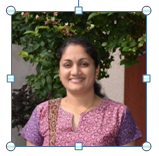
Director, Digital Forensics and MIS
Mrs. Anupama Kilaru holds an M.S. in Computer Engineering from the University of Houston, Texas, a B.Tech in Computer Science from Osmania University, and a Post Graduate Diploma in Criminal Justice and Forensic Science from the University of Hyderabad.
With over 25 years of professional experience in the field of Information Technology, Mrs. Kilaru brings extensive global expertise in Digital Forensics and Airline Software Solutions. She has been associated with Truth Labs since 2015, contributing significantly to the organization's technological and forensic initiatives.
In her current role, she serves as a Certified Digital Forensics Expert specializing in Cyber Forensics and Audio-Video Forensics. She also oversees the Management Information Systems (MIS), ensuring efficient database management and digital infrastructure for the organization.
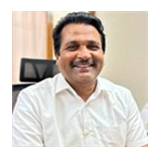
Director, QD, DNA and In-charge, Hyderabad Region
Mr. G. V. H. V. Prasad holds an M.Sc. and M.Phil. in Chemistry along with a Post Graduate Diploma in Cyber Forensics. He has over a decade of experience with the State Forensic Science Laboratory, Andhra Pradesh, Hyderabad, and has been associated with Truth Labs since 2007, where he currently serves as Director.
He functions as the Technical Manager overseeing compliance with ISO/IEC 17025:2017 standards, and is a Designated Expert in Questioned Document Examination, Fingerprint Analysis, and DNA Forensics. Mr. Prasad also heads the Hyderabad Regional Laboratory, ensuring excellence and integrity in forensic investigations.
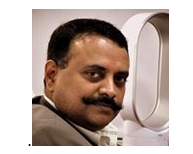
Director, Digital Forensics and Cyber Security, Truth Labs International
Mr. U. Ramamohan holds an M.Sc. in Statistics from S. V. University, Tirupati, and a Post Graduate Diploma in Computer Applications from the University of Hyderabad. A retired Superintendent of Police from Telangana and Andhra Pradesh States, he brings over 25 years of expertise in digital evidence handling and forensic analysis, having investigated more than 1000 cases as a Computer Forensic Expert with APFSL and CID.
With an additional 15 years of experience in field crime investigations, including cybercrimes, bomb, and explosive cases, Mr. Ramamohan now leads the Digital Forensics and Cyber Security division at Truth Labs International, providing expert guidance and technical insight in complex forensic investigations.
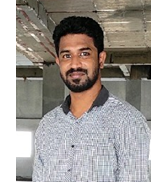
Deputy Director, CF/AV Section
Mr. Immanuel Premkumar holds an M.Tech in Nanotechnology and an M.Sc. in Nanoscience. He has been associated with Truth Labs since 2016 and currently serves as Deputy Director in the Cyber Forensics and Audio-Video (CF/AV) section.
In his role, he functions as an expert in CF/AV analysis, issuing forensic reports and contributing to a range of scientific and administrative operations within the organization. His expertise supports the lab's mission of ensuring accuracy and integrity in forensic investigations.
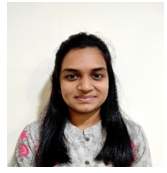
Deputy Director, QD and FP Sections
Mrs. Shaikh Raeesah Tasleem holds an M.Sc. in Forensic Science and has been associated with Truth Labs since 2019, currently serving as Deputy Director in the Questioned Documents (QD) and Fingerprint (FP) sections.
She functions as an expert in Questioned Document Examination, Fingerprint Analysis, and Forensic Linguistics, issuing expert reports and contributing to the scientific and administrative operations of the laboratory. She also coordinates with other forensic experts to ensure efficiency and precision in handling forensic casework.
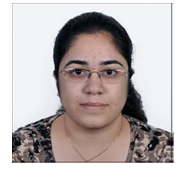
Deputy Director, QD and FP Sections
Ms. Gargi Deshmukh holds an M.Sc. in Forensic Science from King's College London, specializing in DNA Forensics. She possesses extensive expertise in molecular biology and microbiological techniques, including multiplex PCR, DNA sequencing, DNA fingerprinting using ABI Genetic Analyzer, and autosomal STR analysis.
She has handled a wide range of forensic cases involving paternity and maternity disputes, weapons identification, murder, and sexual assault investigations. With experience analyzing over 500 biological specimens such as blood, hair, teeth, and bones, Ms. Deshmukh is proficient in interpreting and preparing detailed DNA fingerprinting reports with high scientific accuracy.